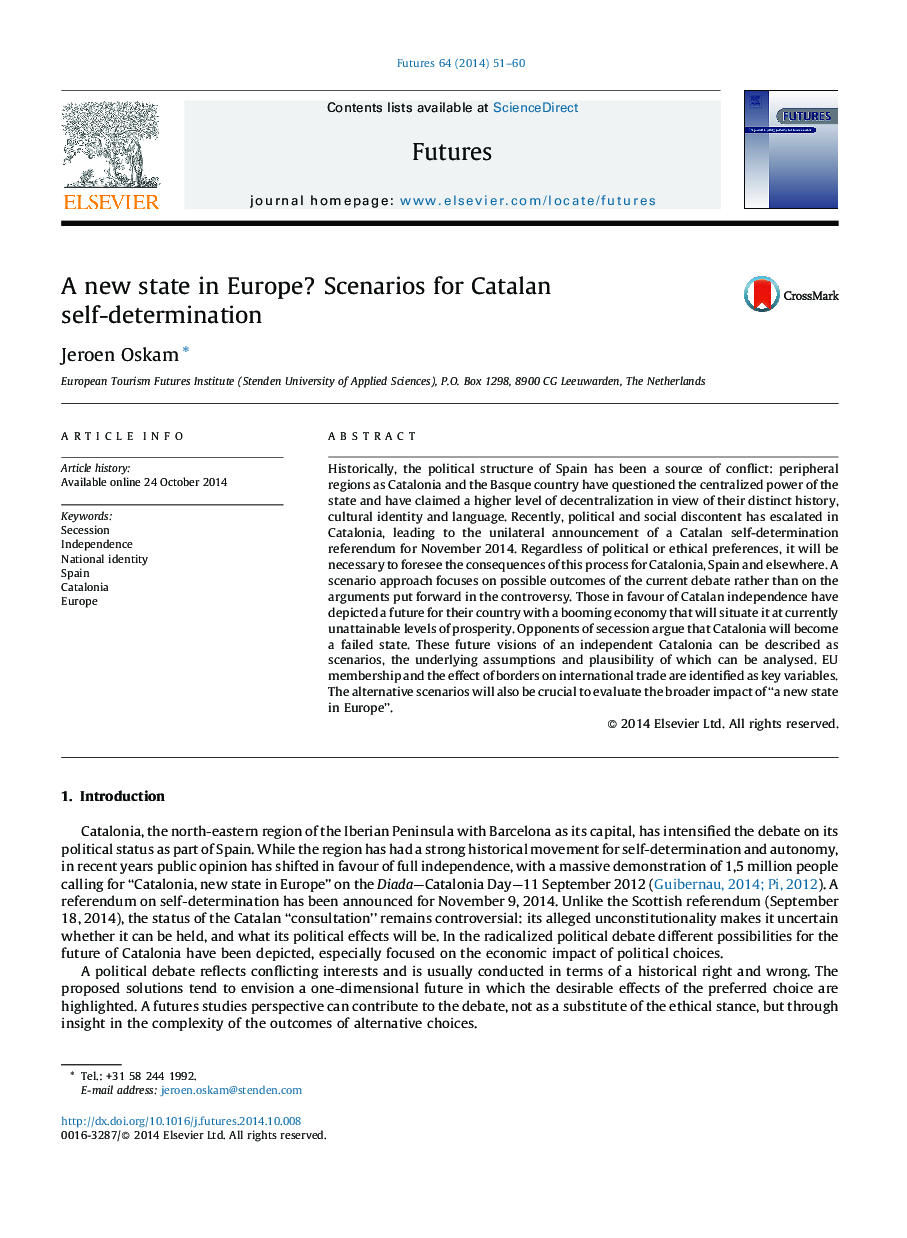| Article ID | Journal | Published Year | Pages | File Type |
|---|---|---|---|---|
| 7424433 | Futures | 2014 | 10 Pages |
Abstract
Historically, the political structure of Spain has been a source of conflict: peripheral regions as Catalonia and the Basque country have questioned the centralized power of the state and have claimed a higher level of decentralization in view of their distinct history, cultural identity and language. Recently, political and social discontent has escalated in Catalonia, leading to the unilateral announcement of a Catalan self-determination referendum for November 2014. Regardless of political or ethical preferences, it will be necessary to foresee the consequences of this process for Catalonia, Spain and elsewhere. A scenario approach focuses on possible outcomes of the current debate rather than on the arguments put forward in the controversy. Those in favour of Catalan independence have depicted a future for their country with a booming economy that will situate it at currently unattainable levels of prosperity. Opponents of secession argue that Catalonia will become a failed state. These future visions of an independent Catalonia can be described as scenarios, the underlying assumptions and plausibility of which can be analysed. EU membership and the effect of borders on international trade are identified as key variables. The alternative scenarios will also be crucial to evaluate the broader impact of “a new state in Europe”.
Related Topics
Social Sciences and Humanities
Business, Management and Accounting
Business and International Management
Authors
Jeroen Oskam,
